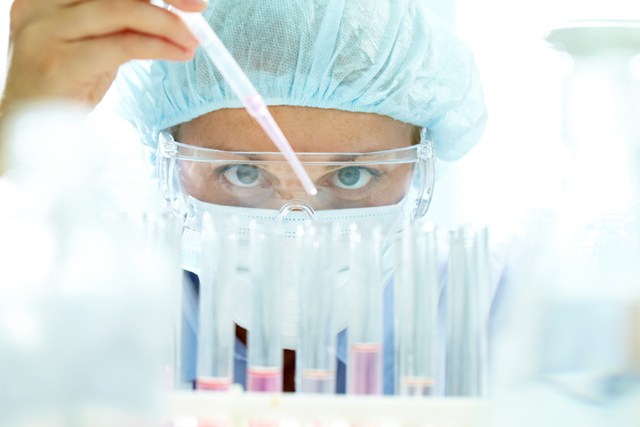The average projected return on investment (ROI) in research and development (R&D) for global pharmaceutical companies has fallen to 1.2 per cent in 2022, down from the 2021 record of 6.8 per cent, according to research by Deloitte.
The decline of 5.6 percentage points from 2021 – the largest year-on-year fall since the study began – was driven by the successful approvals of high forecast value drugs and medicines (especially COVID-19 vaccines and treatments) which have since been commercialised and therefore moved out of the scope of this year’s window of analysis.
The latest Measuring the return from pharmaceutical innovation 2022 report from Deloitte’s Centre for Health Solutions looks at the current state of R&D ROI for 20 leading biopharma companies, as well as their pipeline composition, sources of innovation and potential solutions for companies, patients and investors – in particular on expediting digital momentum in R&D.
Forecast average peak sales per asset – the amount of money a drug is expected to generate annually – have also declined, falling from $500 million in 2021 to $389 million in 2022. With COVID-19 emergency use approval (EUA) assets excluded, the average peak sales forecasts fell from $340 million in 2021 to $284 million in 2022.
Karen Taylor, director and head of research, Deloitte Centre for Health Solutions, said: “While a drop-off in projected returns for biopharma R&D was inevitable after such an exceptional year in 2021, the degree is sharper than many would have expected. In 2021, projected average return on investment peaked, largely owing to COVID-19 related assets expected to be used by large global populations. Even when those assets are excluded, the average ROI for 2021 was still double the 2022 projections.
“Aside from COVID-19, the fall in projected ROI has been driven by a combination of factors, ranging from high-value drugs securing approvals and entering commercialisation, to an increase in cycle times for drugs still in development. Furthermore, our analysis revealed that the number of terminated assets has doubled, from 15 in 2021 to 30 in 2022, including six that were forecasted to be ‘blockbuster’ assets.”
Cycle times rise, increasing costs to develop drugs
Deloitte’s research also found that average cycle times – the time it takes for a new drug to progress from starting clinical trials to approval – increased to 7.09 years in 2022 from 6.9 years in 2021, the second longest average cycle time since the study began.
As a result, the estimated average cost of developing a drug, including the cost of failure, increased from $1,986 million in 2021 to $2,284 million in 2022.
In total, the 20 companies analysed spent $139 billion on R&D in 2022, a decrease of two per cent compared to 2021 ($141 billion).
Home-grown assets drive more than half of expected revenue
The research also revealed a significant increase in the proportion of forecast revenue from home-grown assets amongst the pharma cohort, rising from 29 per cent in 2021 to 51 per cent in 2022. This increase has been largely driven by the addition of five new high value assets in the R&D pipeline.
At the same time, the proportion of forecast revenue from co-developed assets has almost halved year-on-year, falling from 46 per cent in 2021 to just 18 per cent in 2022.
Taylor added: “Despite cycle times not accelerating as many expected following the pandemic, there has been a notable uptick in pharma companies developing their own assets. Indeed, over half of the forecast revenue from the late-stage R&D pipeline of drugs and treatments is now being generated in-house.
“By contrast, we have seen a considerable decrease in the proportion of forecast revenue for co-developed drugs and treatments – with no new co-developed blockbuster assets entering the pipeline in 2022.”
Clinical trials of tomorrow
With the increase in average cycle times, rising costs to develop drugs and treatments, as well as the lower average forecast peak sales seen in this year’s analysis, Deloitte’s research reveals a need for pharma R&D departments to transform the clinical trials process. Through combining patient centred-design with innovative digital technologies and data tools, it is possible to improve the overall clinical trial experience for patients and physicians.
Colin Terry, European Life Sciences R&D leader at Deloitte, said: “Revitalising today’s clinical trials processes and operations will drastically improve trial efficiency, enhance science-based decisions, and expand collective health equity. Clinical trials of the future will be tailored to the convenience, medical, and behavioural needs of diverse patient populations impacted by the diseases under investigation.
“Virtual trials, including at-home check-ups, remote monitoring and assessments and direct-to-patient drug distribution, are just some of the ways in which R&D leaders can decentralise the clinical trial process to cut drug development timelines. Not only will this ’digital-first’ approach place a lower-burden on patients and health care workers, but it will also have the added benefit of significantly reducing environmental impact due to reduced travel and fewer in-person interactions.”


